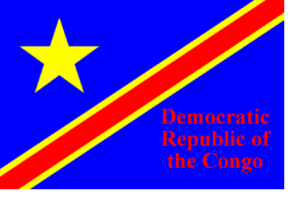 While the Democratic Republic of Congo’s constitution mandates free, universal and compulsory primary education, years of civil war followed by ongoing political and ethnic strife have kept millions of children away from school. Literacy remains relatively low, and the Congolese government faces many challenges in improving citizens’ access to and quality of schooling.
While the Democratic Republic of Congo’s constitution mandates free, universal and compulsory primary education, years of civil war followed by ongoing political and ethnic strife have kept millions of children away from school. Literacy remains relatively low, and the Congolese government faces many challenges in improving citizens’ access to and quality of schooling.
Education in the DRC consists of four levels: ecole maternelle (kindergarten), which is not compulsory and lasts from ages 3-5; ecole primaire (primary school), attended by children ages 6-7 to 10-11; and lower and upper levels of secondary school.
Lower level secondary students, ages 12-15, study a two-year core program, culminating in final exams which may lead to upper level studies for children 14-17 years old. Upper level students choose either a short cycle technical/professional path or a longer cycle in which students specialize in literature, science, or a number of other disciplines. Students completing the short cycle may earn the brevet diploma; long cycle students sit for state exams and may earn the Diplome d’Etat.
The following chart depicts the grading scale for secondary and post-secondary institutions:
| Scale | Description | U.S. Grade Equiv. |
|---|---|---|
| 90-100% | Excellent (Excellent) | A |
| 80-89% | La Plus Grande Distinction (Highest Distinction) | B+ |
| 70-79% | Grande Distinction (High Distinction) | B |
| 60-69% | Distinction (Distinction) | C+ |
| 50-59% | Satisfaction (Satisfactory) | C |
| 0-49% | Ajourne’ (Fail) | F |
Primary students study Congolese languages, French, mathematics, history, geography, science, health, manual labor, and religion. Physical education, music, and art are also offered.
First-level secondary curriculum includes French, English, history/geography, mathematics, natural sciences, technology, design, music, and physical education. Second-level students specialize according to their chosen path, whether it be literature, science, professional or technical.
Higher education in the Democratic Republic of Congo is provided by a number of public and private universities, including the Universite’ de Kinshasa and Kongo University. Many technological, teacher-training, and health sciences institutes offer professional and vocational degree programs.
© 2026 Gaetranslations | Terms & Conditions
Website by: Timefortheweb